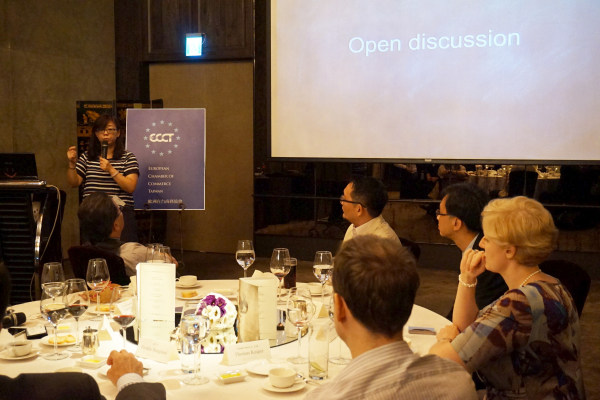Mandarin Pop in Greater China

HIM International Music (HIM) is an independent record label and artist management company that was established in 1999. One of HIM Music's subsidiaries, HIM Music Publishing, specializes in developing and promoting song writers and their songs/lyrics. In 2013, HIM became the first company from the culture and creative industry to be listed on the Taiwan Stock Exchange. The company has built successful entertainment careers for stars such as S.H.E., Fahrenheit, Yoga Lin and Power Station.
Taiwan is the original source and remains the centre of Mandarin Pop. The style of music began to flourish in the 1980s in Taiwan but, even in the early days, its influence was being felt in mainland China, giving rise to the popular saying that Deng Xiao-ping (China's leader at the time) ruled the day while Deng Li-jun (usually referred to in English as Teresa Teng, the legendary Taiwanese pop singer) ruled the night. Today, Taiwan remains the origin of 70% of the catalogue of Mandarin Pop songs, according to Ho. Besides Taiwan and mainland China, Taiwan-style Mandarin Pop has penetrated markets in the Greater China region as well as globally. According to Ho, up to 40% of the populations of Singapore, Malaysia, Hong Kong, Macau, and (to a lesser extent) Indonesia and Thailand also listen to Mandarin Pop while the music and creations in these countries are influenced by Taiwan's Mandarin Pop style.
Taiwan's status has been cemented by being the originator (in 1990) of the annual Golden Melody Awards, the equivalent of the Mandarin Pop world's Grammy Awards. The Golden Melody Awards are widely recognized as fair. They are also influential. For example, last year's winner of the Golden Melody Award for the best new artist has gone from obscurity to launching a high-profile and lucrative career.
Many Taiwan artists have developed their skills and talent locally and become successful pop music stars in the Mandarin speaking world, which reaches mainland China and the Chinese diaspora globally. After starting out as pop idols, many of these artists have gone on to become movie and television stars, models or TV hosts. Ho cited the example of the pop group F4, who succeeded as soap opera stars as well as pop stars, using both mediums to promote themselves.
HIM has a proven track record of discovering talented potential artists and then developing them into unique entertainment identities. The artists signed to HIM have developed careers that span music, hosting, acting and beyond.
HIM focuses on "360 degree" management, which includes acting, TV hosting, modeling, endorsements and book publishing. Famous actor Dylan Kuo and popular TV host Sasa are all under HIM's all-inclusive management as their performing careers expand.
HIM has dipped a toe into television series and movies but, given the huge expense and risks, the company prefers to make small investments in movie and television production companies rather than directly in movies and series.
HIM is also branching out to other areas of the cultural and creative industry by signing young and talented illustrators. Famous fictional characters created by artists signed by HIM such as Cherng, Byebyechuchu, Mr. Elk and Rumbbell are under HIM's management. Ho believes that rights and royalties earned by these characters are a potential growth area for the company.
Despite the challenges facing the music industry, the licensing market is healthier in Taiwan than China. Taiwan is also the first country in South East Asia to have digital music services.
A breakdown of HIM's revenues in the first quarter of 2015 is also an indication of how much the music industry has changed. In the golden era of the recording music industry, most revenues came from the sale of recorded music (first vinyl records, then cassette tapes and later CDs). Fast forward to the first quarter of 2015, and only 4% of HIM's revenues came from physical sales (of CDs) compared to 61% from live performances and 35% from licensing the rights the firm owns.
Ho noted that China had seen a sharp rise in concerts since 2012, helped by the fact that so many venues (stadiums) had been built ahead of the 2012 Beijing Olympics. Music lovers in Taiwan are also prepared to pay good money to see quality live performances, which has helped to offset at least some of the decline in industry revenues from physical sales.
On the question of streaming music, Ho said that China is likely to introduce paid streaming services in the near future. She expressed the view that if just 10% of Chinese users paid for streaming, this would have a dramatically positive impact on the music industry.
